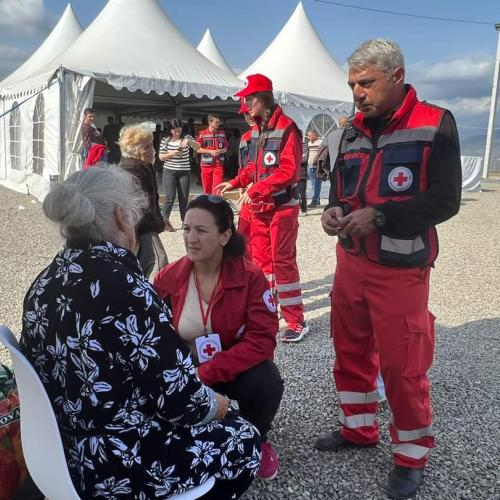
’What about the helpers?’ WhoCares? We do!
WhoCares project supports the wellbeing of helpers who work with those affected by armed conflict and pandemics.
Over the past few years Europe has witnessed an increasing frequency of natural and human-induced disasters which have caused devastation to human life.
How often do we consider the impact of these events (and others that don’t make it into the headlines) on those who work to support others? What about all those who help people affected by conflict? Those who treat patients, organise shelters, food and water. Those who try to offer assistance to deeply traumatised people. Those who make it possible for children to play and learn in safe spaces. Those who help others in adapting to new and challenging circumstances. What about the helpers?
This is where the “WhoCares” project comes in. It focuses mostly on the wellbeing of helpers (e.g. medical personnel, mental health experts, teachers, volunteers, etc.) during and after phases and incidents of armed conflict – as well as during pandemics. Whocares’ overall aim is to develop materials, training courses and networks that support helpers’ wellbeing while they work with people affected by armed conflict.
The research phase, focused on collecting data on the current situation including problems and challenges in Georgia, Ukraine and Armenia, is now coming to an end. Based on the results, with input also from literature, previous findings (including on the Covid-19 pandemic) and sharing good -practice, the project will develop information material, training courses and tools that will be presented in national workshops with relevant stakeholders.

“It does not matter what kind of helper you are, you have to master your emotional control and be psychologically resilient.”
The final phase of Whocares will include the development of a training course and its implementation, and the dissemination of project outputs in association with the Knowledge Network, as well as with other networks from previous projects and collaborations. Further information and details can be found on the project’s website.
The project is funded by the European Commission (ECHO) and receives co-funding from the Austrian Development Agency. It is a follow-up project to the IPP project, which focused on the situation of helpers during the Covid-19 pandemic. Partner organisations came from Austria, Georgia and Armenia. WhoCares has now expanded the number of partners from those countries and has involved a new partner from Ukraine.
Further information and details can be found on the project’s website.
“The strength of a helper lies in nurturing his/her own mental health.”
Sectors